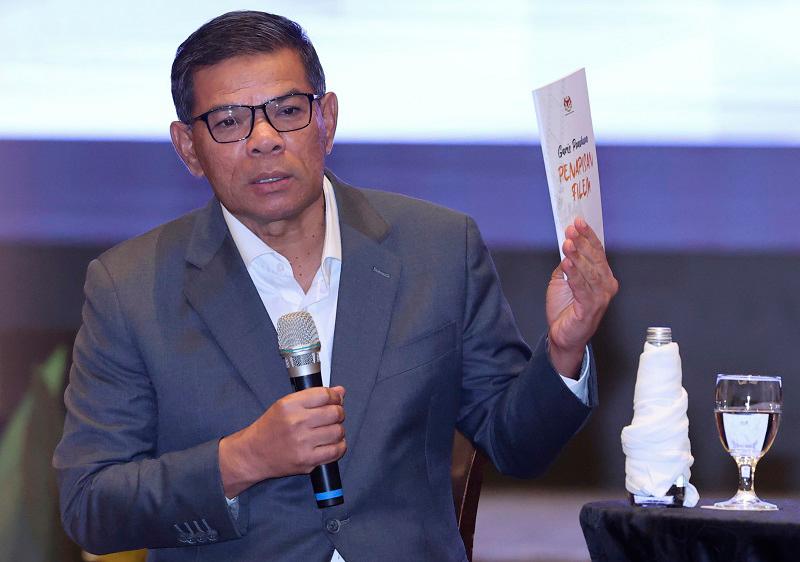By The Malketeer
Malaysia’s film industry is sounding the alarm over the government’s newly announced film censorship guidelines, which they say are too vague and open-ended to provide clear guidance.
The Malaysian Television Producers Association (PTVM) has raised serious concerns that the lack of specificity could lead to arbitrary decisions and curb creative freedom.
At the heart of the issue is the fact that the new guidelines, unveiled by Home Minister Saifuddin Nasution Ismail, are based on broad pillars like “security and public order,” “religion and morality,” and “socio-cultural factors.”
While intended to address sensitive matters, the vagueness essentially leaves interpretation up to the Film Censorship Board (LPF).
“The guidelines are too general regarding what can and cannot be done, leaving the issue of censorship at the Film Censorship Board’s discretion,” said PTVM President Jurey Latiff Rosli.
“For artists, every day of uncertainty is money lost.”
Jurey highlighted that non-industry professionals on the Film Censorship Board may lack the nuanced understanding to interpret creative works appropriately.
“Only film people can catch and understand the language of films and visual symbolism,” he explained.
The concern from film-makers is that their creative vision could be compromised by censors who fail to grasp subtle contextual meanings.
Scenes or entire films risk being cut or banned outright after production when guidelines are unclear from the outset.
Jurey proposed having industry representatives join the Film Censorship Board to provide balanced perspectives.
He also suggested early consultations between authorities and creators during the production process to preempt issues.
“We don’t want our work to be cut or withdrawn after it has aired. If possible, this could be prevented by referring to clear the Film Censorship Board guidelines from the start,” he urged.
The new classification system with P12, P13, and P16 age-rating categories has been viewed as a positive step.
However, lingering ambiguity around what constitutes violations could perpetuate the long-standing struggle film-makers face with Malaysia’s censors.
As Jurey bluntly stated, “For artists, every day is money.”
With creativity and livelihoods at stake, Malaysia’s film industry is calling for more transparency and collaboration in developing censorship rules fit for the modern era.
MARKETING Magazine is not responsible for the content of external sites.
An afternoon of conversations we never had, with leaders most of you never met.
Discover what’s possible from those who made it possible. Plus a preview of The HAM Agency Rankings REPORT 2024.
Limited seats: [email protected]
BOOK SEATS NOW









